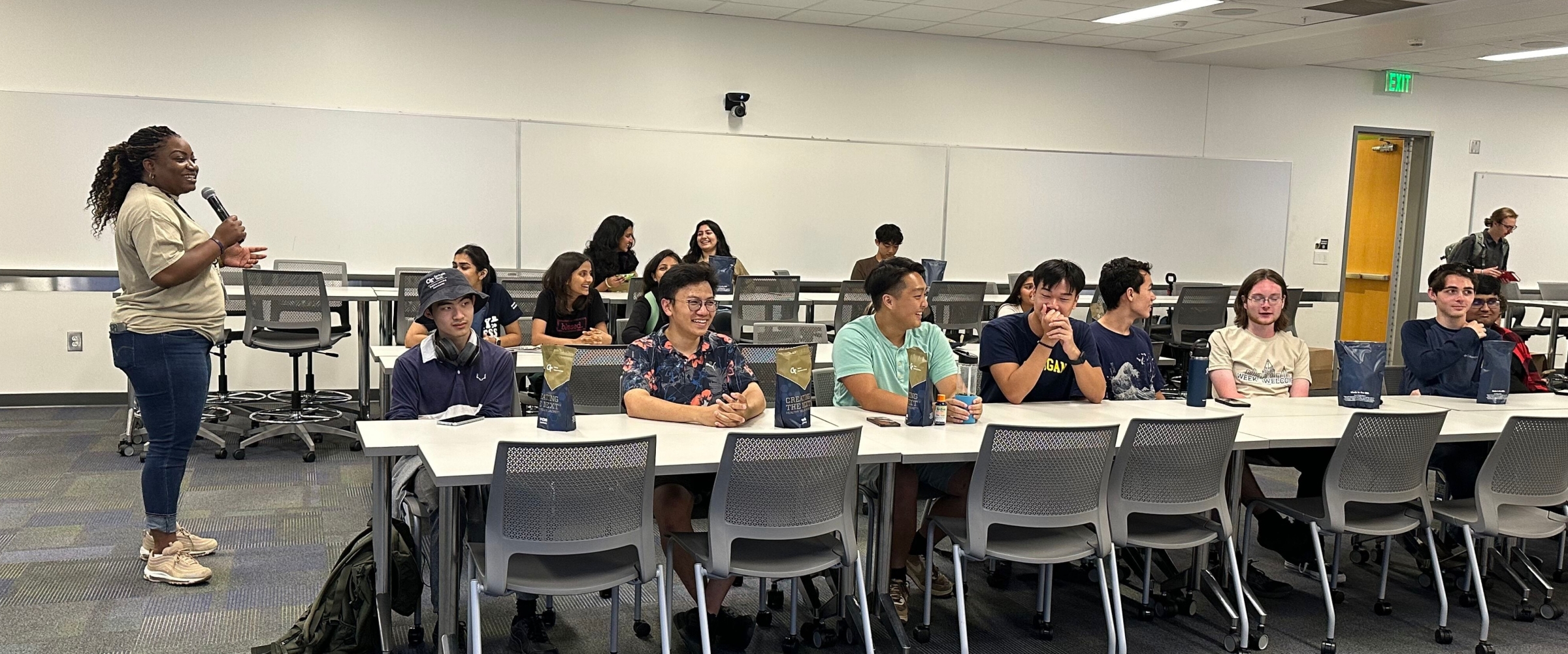(text and background only visible when logged in)

(text and background only visible when logged in)
Health Education
Our staff is available to give presentations on the following content areas:
Eight Dimensions of Wellness
The concept of wellness involves a holistic approach. We will introduce participants to the 8 dimensions of wellness (physical, emotional, social, intellectual, occupational, environmental, financial, and spiritual) and provide strategies and resources to help incorporate these concepts into their daily lives to not only survive but thrive and flourish at Georgia Tech.
Alcohol
We teach and correct various myths held by college students regarding alcohol use and its consequences. Participants will be able to identify alcohol norms and the role social norming plays among peer groups related to acceptable/unacceptable behavior.
Resilience
Resilience is the capacity to bounce back despite adversity. Participants will learn skills rooted in emotional balance, learned optimism, and social connection to help build grit and allow participants to bounce back and prepare a toolkit to address adversity in their lives.
Sexual Health
We empower students to make educated decisions with their bodies and with their partners if they choose to engage in sexual activity. Participants are introduced to different sexual health concepts including healthy relationships, consent, safer sex practices, contraceptive methods, and much more.
Stress Management
Develop a deeper understanding that, while stressors are not always within our control, how we respond to them is. Participants will learn about the basics of stress management, including identifying their current stress levels, recognizing common stressors, and learning useful tools and resources to reduce their stress.
Self-care
We will explore the importance of practicing self-care as a strategy to promote holistic wellness. Participants will learn about the importance of listening to their bodies and creating time to engage in activities that recharge, rejuvenate, and reset daily to reduce the risk of burnout.
NUTRITION
Eating on a Budget
We will explore common challenges to eating on a budget. Participants will learn how to make healthy choices while sticking to their budget and examine the resources available to support them.
Intuitive Eating
Learn about the 10 Intuitive Eating Principles and how to reject the diet mentality and develop a healthy relationship with food. This presentation takes the concept of hunger and creates actionable steps for beginning to understand, listen to, and honor it.
Nutrition 101
The basic concepts of nutrition and wellness are highlighted through debunking common nutrition myths. Participants will learn skills and tips to incorporate healthy eating into their busy lives and how to set achievable goals.
The Dangers of Disordered Eating
Learn what it is, who is at risk, what to look for, and how to help. This presentation focuses on identifying disordered eating, and the psychological, social, and interpersonal triggers of negative body image and eating disorders.
VOICE
VOICE Services & The Role of an Advocate
This presentation provides an overview of VOICE and the services the Advocates provide to support campus. Participants will learn about the role of an Advocate and will define sexual harassment, stalking, relationship violence, and sexual assault.
How to Support a Survivor
We will discuss the impact of sexual harassment, stalking, relationship violence, and sexual assault on survivors. Participants will learn how to provide support, the role of VOICE Advocates, and other available resources.
What is Sexual Violence and What Does It Look Like?
VOICE Advocates will define sexual harassment, stalking, relationship violence, and sexual assault as well as unpack examples of what behaviors under the sexual violence umbrella may look like in real life scenarios and detail how Advocates can assist.
Sexual Violence Prevention Education
Bodily Autonomy and Setting Boundaries
We will discuss the concept of bodily autonomy and examine some of the mixed messages many individuals receive around their bodies and how to set boundaries. Participants will learn the importance of understanding their bodies, to respect themselves and others, and to communicate their personal limits effectively.
Bystander Intervention
A discussion around four different strategies to intervene as a bystander and how participants can begin to develop a personal style for intervening in specific scenarios and empower others in their community to help when needed. Participants will identify potentially dangerous/unhealthy situations and determine the appropriate intervention strategy to de-escalate the situation.
Consent & The Conversation
Consent is integral to creating meaningful connections and sexual experiences with others. Participants will learn about the elements of consent and conditions related to identities, intersectionality, and how they can create coercive environments.
Healthy Relationships
We will discuss values, beliefs, and needs related to relationships, as well as how to communicate them. Participants will learn the signs of an unhealthy relationship and different forms of relationship abuse to work towards building healthy relationships through self-reflection and conversation.
The Digital Danger Zone
Technology can play a role in harming victims/survivors of sexual violence. Participants will learn about how sexual violence looks using technology and how to respond if this happens to you or someone you know.
Root Causes of Violence
A discussion related to culture, surroundings, and language that allow for violence and how we can move towards promoting social norms that can help to create safe communities. Participants will learn what sexual violence is and unpack the dominant cultural narratives surrounding gender, sexuality, and gender roles that influence how individuals relate and form intimate relationships with others.
What is Stalking & How to Respond
We will define stalking, what stalking behaviors include, and how to respond if you or suspect someone you know may be experiencing stalking.Participants will learn how to recognize stalking and its impacts and provide support if someone they know is experiencing stalking.
We're also able to create a custom experience based on your group’s unique needs and priorities. All program requests should be submitted at least two weeks in advance.